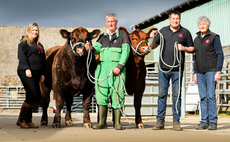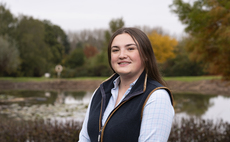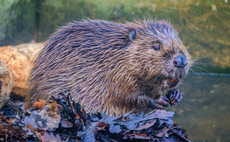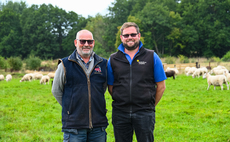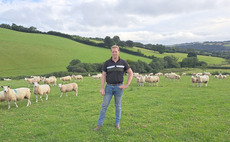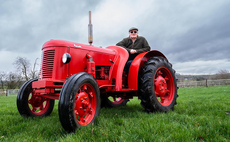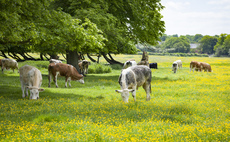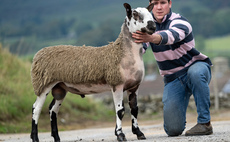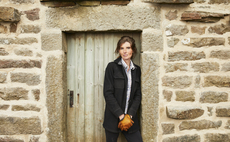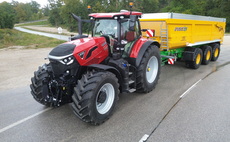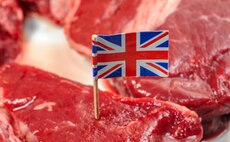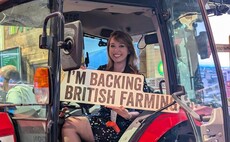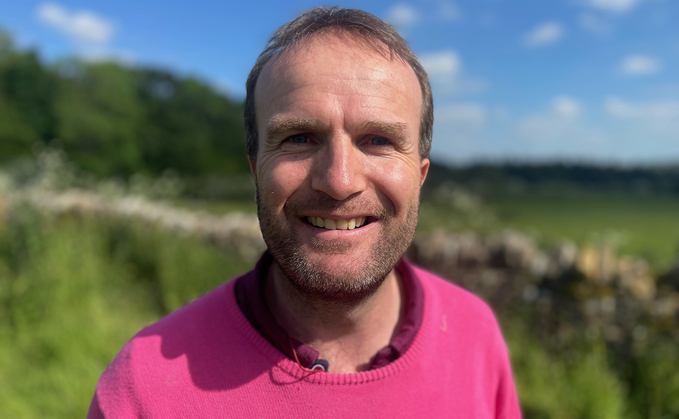
Johnnie Balfour is managing partner at Balbirnie Home Farms, Fife, and organiser of the Groundswell Outreach Falkland event.
Since the Second World War, we have bought in a bag and killed in a field to produce as much as possible from an acre of land. Although soil is still core to what we grow, we have sidelined it in the race - and it is costing us.
Through going back to whole systems at Balbirnie Home Farms and maximising on our natural assets - sunlight, water, worms and hooves - we have focused on making our soils better and seeing our farming business become more resilient over the last eight years. A regenerative approach to farming is a no-brainer for me; it is about mitigating risk in a different way to what we have been doing for the last 80 years.
While I was living in Hong Kong, where my wife and I moved with our young family for work, I completed a post-grad in sustainable agriculture as well as a course at the Holistic Management Institute. I had always been interested in Holistic Management and what we could be doing with this ethos around giving livestock a more involved role in growing arable crops.
Our farm manager, David Aglen, was already experimenting with cover cropping and direct drilling, so we were both on the same page. When I returned to the farm full-time five years ago, we took the handbrake off and started experimenting with multiple ways to give the soil the best chance at optimum health.
Integrating livestock into our crop rotation has been one of the most obvious uplifts - last year, the fields where there were no animals integrated gave less productive crops.
We keep big mobs of sheep on small areas of the winter sown arable fields for a short period of time, grazing enough to take the growth down but not too long that they decimate the root mass. It also allows us to rest the grass on the remainder of the farm, so that the covers are longer in the spring.
We grow forage crops to feed the cattle during the winter, which has the benefit of keeping the soil covered year-round before sowing spring barley or oats. It brings diversity into the rotation and decreases disease pressure. Livestock is part of our toolbox for reducing the need for nitrogen and fungicide. It is easy to tell where there have not been livestock in the rotation, as we need more chemicals to manage the crops.
With the cattle outside year-round, it has also reduced our costs on concentrated feed and manpower for both bruising the feed and feeding indoors over the winter, which is another sideways win. Grass and forage are best for the animals and we are spending a lot less too. We are also proud to have been certified with Pasture for Life, which recognises what this approach is doing for ecosystems and has growing appeal for discerning consumers.
All our growing on the farm now goes through a litmus test of regenerative farming's five core principles: reduce disturbance, cover the soil, keep living roots in the soil, retain diversity in the crops, and integrate livestock.
What we are doing is not complicated - we very much keep to the KISS (Keep It Simple) approach. We have not got it all right and, like any change in farming, it takes years - not days - to see the real results.












